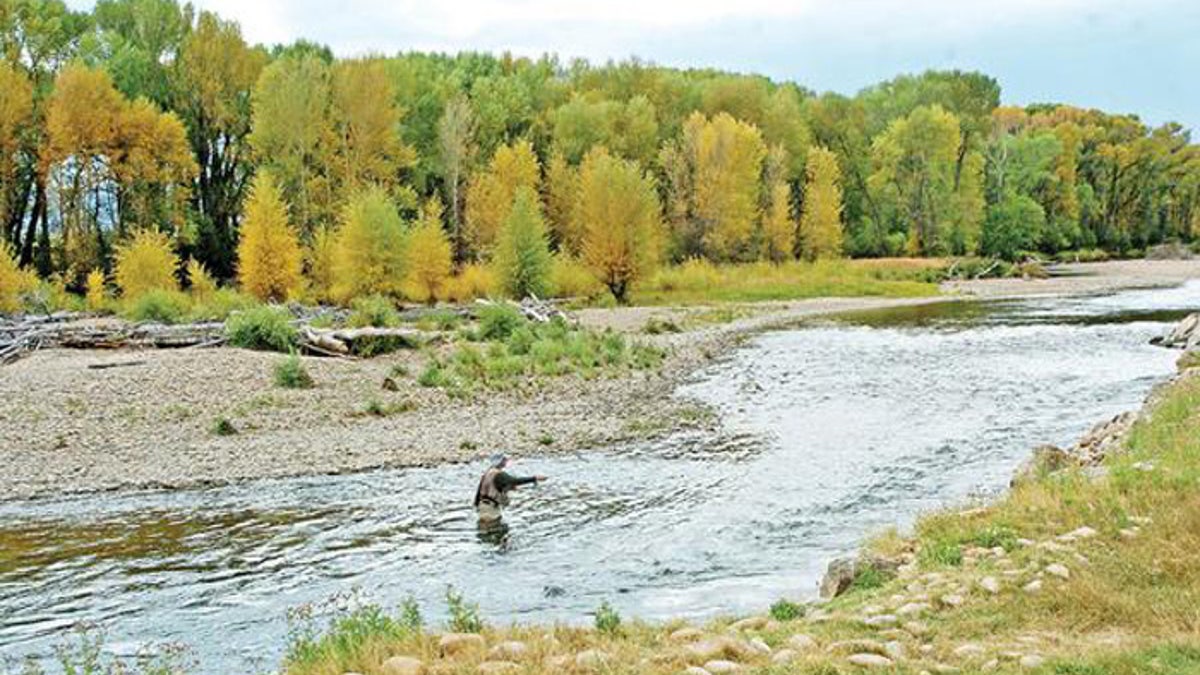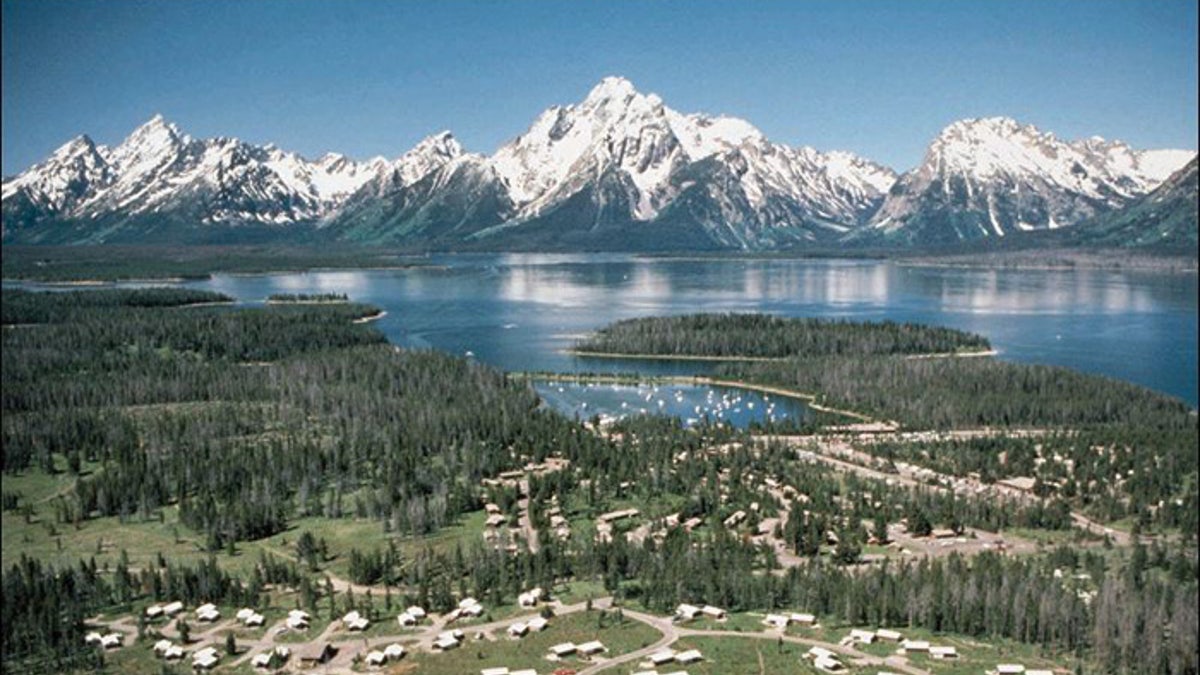
Environmentalists say the state's waterways are being polluted by runoff from ranches. (AP)
A new Wyoming law theoretically could land a nature lover in prison simply for taking a picture of a Cowboy State sunset and proudly entering it in a photo contest, at least according to one critic’s reading of it.
The law, dubbed the Data Process Bill, makes it illegal to “collect resource data” from any land outside of city boundaries. Critics, including University of Denver Law Professor Justin Pidot, say it appears aimed at stopping self-appointed watchdogs from documenting pollution of waterways caused by runoff from farms and ranches.
“In Wyoming, there is a real conflict between environmentalists and ranchers about water quality,” said Pidot, who raised his objections in a Slate.com article titled "Forbidden Data: Wyoming just criminalized citizen science." “There is increasing evidence that citizen scientists have gathered about E. Coli and bacteria in water that crosses [federal ] Bureau of Land management land.”
“The statute is written in overbroad terms and could apply to circumstances that we cannot envision.”
The law makes it illegal to collect resource data from private, public or federal land without permission from the landowner, and defines “collect” as to take “a sample of material, acquire, gather, photograph or otherwise preserve information in any form from open land which is submitted or intended to be submitted to any agency of the state or federal government.”
No one has been prosecuted under the law since it was signed by Republican Gov. Matt Mead in March. State Rep. David Miller, the Republican chairman of the Judiciary Committee, which produced the legislation, said Pidot’s hypothetical is not realistic.
“The law does not forbid pictures of the sunset,” Miller said. “It was intended to prevent trespassers from collecting any information, a water sample, a soil sample, a rock sample on private land without landowner’s permission.”
Miller said environmental groups who collect samples and photos on other people’s land can distort evidence to create the appearance of wrongdoing. He offered a worst-case scenario of his own.

Pidot, (l.), and Miller, (r.), have differing views on Wyoming's law regarding environmental data collection.
“For example, I could come to anyone’s driveway and find where your vehicles has leaked a drop of oil or antifreeze, sample that spot, {and claim] you are not in compliance with environmental regulations,” Miller said.
Pidot acknowledges his dire warning of the law’s application to a nature-loving shutterbug is unlikely, but notes that citizens have good reason to fear overreaching laws that could give officials wide latitude in enforcing them.
“The statute is written in overbroad terms and could apply to circumstances that we cannot envision,” Pidot said. “You can imagine a circumstance where a local sheriff might enforce it in order to be vindictive against an enemy, for example.”

Wyoming offers no shortage of beautiful scenery, but one law professor warns taking a picture could get you in trouble. (AP)
The real objection to this and other so-called “ag-gag laws” is that they punish people who seek to report wrongdoing that harms the public, said Pidot. Idaho and Utah have passed laws that critics say are meant to bar private organizations or citizens from conducting undercover investigations into animal cruelty.
“Rather than enforce the standards or try to change the standards, the effort is to hide information that the standards are being violated and pretend there is no problem,” Pidot said. “Simply concealing information about unlawful situations goes to the heart of what it means to be a democracy.”




